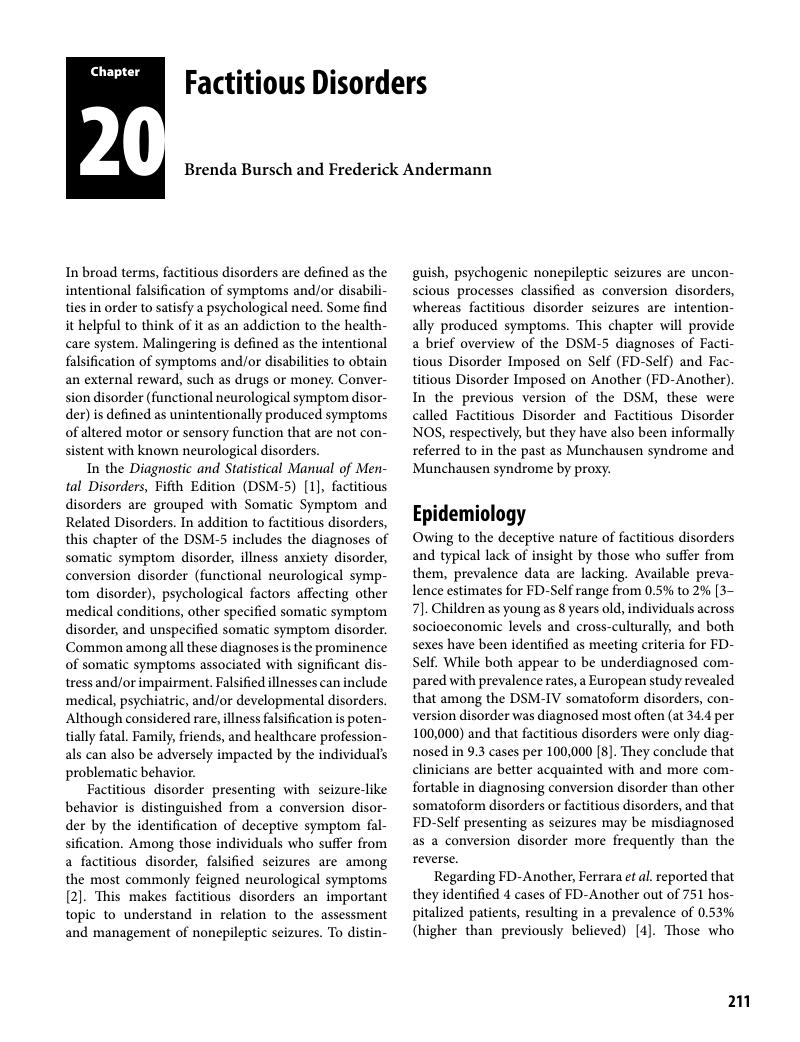Book contents
- Gates and Rowan's
- Gates and Rowan's Nonepileptic Seizures
- Copyright page
- Contents
- Contributors
- Preface
- Acknowledgements
- Video EEGs and Video Clips
- Dedication for Dr. A. James Rowan
- Dedication for Dr. John R. Gates
- In Remembrance of Dr. A. James Rowan
- In Remembrance of Dr. John R. Gates
- Section 1 Recognition, Diagnosis, and Impact of Nonepileptic Seizures
- Section 2 Nonepileptic Seizures: Culture, Cognition, and Personality Clusters
- Section 3 Psychiatric and Neuropsychological Considerations in Children and Adolescents with Psychogenic Nonepileptic Seizures
- Chapter 17 Psychiatric Features and Management of Children with Psychogenic Nonepileptic Seizures
- Chapter 18 Factors Contributing to the Onset of Psychogenic Nonepileptic Seizures in Children and Adolescents
- Chapter 19 Adolescents’ and Parents’ Perceptions of Psychogenic Nonepileptic Seizures
- Chapter 20 Factitious Disorders
- Section 4 Psychiatric and Neuropsychological Considerations in Adults with Psychogenic Nonepileptic Seizures
- Section 5 Treatment Considerations for Psychogenic Nonepileptic Seizures
- Appendix: Care Coordination Treatment Plans for Patients with Psychogenic Nonepileptic Seizures (PNES)
- Index
- References
Chapter 20 - Factitious Disorders
from Section 3 - Psychiatric and Neuropsychological Considerations in Children and Adolescents with Psychogenic Nonepileptic Seizures
Published online by Cambridge University Press: 18 May 2018
- Gates and Rowan's
- Gates and Rowan's Nonepileptic Seizures
- Copyright page
- Contents
- Contributors
- Preface
- Acknowledgements
- Video EEGs and Video Clips
- Dedication for Dr. A. James Rowan
- Dedication for Dr. John R. Gates
- In Remembrance of Dr. A. James Rowan
- In Remembrance of Dr. John R. Gates
- Section 1 Recognition, Diagnosis, and Impact of Nonepileptic Seizures
- Section 2 Nonepileptic Seizures: Culture, Cognition, and Personality Clusters
- Section 3 Psychiatric and Neuropsychological Considerations in Children and Adolescents with Psychogenic Nonepileptic Seizures
- Chapter 17 Psychiatric Features and Management of Children with Psychogenic Nonepileptic Seizures
- Chapter 18 Factors Contributing to the Onset of Psychogenic Nonepileptic Seizures in Children and Adolescents
- Chapter 19 Adolescents’ and Parents’ Perceptions of Psychogenic Nonepileptic Seizures
- Chapter 20 Factitious Disorders
- Section 4 Psychiatric and Neuropsychological Considerations in Adults with Psychogenic Nonepileptic Seizures
- Section 5 Treatment Considerations for Psychogenic Nonepileptic Seizures
- Appendix: Care Coordination Treatment Plans for Patients with Psychogenic Nonepileptic Seizures (PNES)
- Index
- References
Summary

- Type
- Chapter
- Information
- Gates and Rowan's Nonepileptic Seizures , pp. 211 - 216Publisher: Cambridge University PressPrint publication year: 2018



